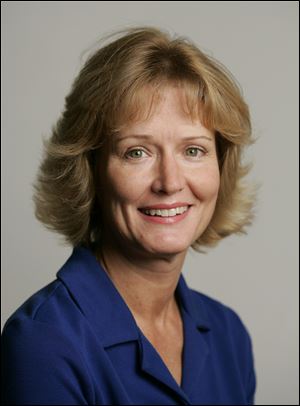
Commentary
Cordray embarks on crusade to educate consumers
8/31/2013
Cordray.
ASSOCIATED PRESS

Cordray.
Richard Cordray, the director of the federal Consumer Financial Protection Bureau, is a man on a mission. It is not to run for governor in Ohio in 2014. He made that clear in a recent phone call from Washington.
“I was just confirmed to a five-year term” by the U.S. Senate to head the two-year-old agency, he told me. So he’s ruled out gubernatorial ambitions next year. The only campaign he’s waging now is to clean up problems in the financial services industry and to empower consumers.
Getting started was anything but easy. When Mr. Cordray went to Washington, Capitol Hill critics mobilized against the consumer protection bureau and haven’t let up.
The centerpiece of the 2010 Dodd-Frank financial reform law was the idea of Sen. Elizabeth Warren (D., Mass.), who advised the Obama Administration after the 2008 financial debacle. The bureau was — and continues to be — opposed by financial and business groups and obliging politicians.
Republican senators tried to derail the bureau by denying it a director. They were infuriated when President Obama bypassed them with a recess appointment that allowed the agency to function fully with Mr. Cordray at the helm.
Opponents don’t dislike the 53-year-old appointee, who has an impressive background as a former Ohio attorney general, treasurer, and state lawmaker. But they object to any government entity that has the authority to hold financial companies accountable.
Last month, the Cordray nomination finally sailed through the Senate, even though political challenges to the new bureau remain.
Sen. Rob Portman (R., Ohio) introduced legislation that would create a separate inspector general for the bureau, which shares an inspector general with the Federal Reserve Board. Mr. Cordray says the IG and staff he shares are “very strong,” but changing the arrangement is “up to Congress.”
Sen. Mike Crapo (R., Idaho) got the Government Accountability Office to investigate the scope and purpose of the agency’s data-collection practices. A bureau spokesman pledged cooperation, but defending those efforts as helping “the bureau to better understand the markets it oversees.”

Marilou Johanek.
Mr. Cordray is taking it all in stride. As the bureau’s first director, he’s ready to make his mark by enforcing rules and protecting rights. To that end, he is spearheading plans to enforce new mortgage-servicing rules that go into effect in January.
“Mortgage servicing — and I saw it in Ohio going all the way back to 2005 — is an industry that has performed poorly for consumers,” he said. “A lot of problems in the processing, a lot of sloppy work with consumer information, a lot of failures to communicate with consumers has, in many cases, cost people a fair amount of money, actually cost them their homes, damaged and destroyed their credit.
“The mortgage-servicing business can be pretty easy business when times are good,” Mr. Cordray added. “You’re just taking payments and applying them. When times are bad, it requires more intensive efforts to work with consumers to resolve situations which costs money, and there’s been an unwillingness to appropriately invest in the process, resources, and manpower.
“This is true not only of mortgage servicing, but other markets that we see creating dead ends for consumers,” he said. “People don’t have as much leverage [as does industry]. They can’t vote with their feet, and it’s our job to turn those industries much more directly facing the consumer, understanding consumer needs, and responding to the consumer.”
Along with new borrower protections, consumer education “is a huge priority for me, personally,” Mr. Cordray said. “In Ohio I saw, over and over again, how many people in tough situations were made worse because they didn’t really understand how to navigate what has become a more complex financial marketplace.
“At the bureau,” he continued, “our focus [for financial literacy] is on schools, workplaces, and places of worship. The K-12 curriculum, which we changed in Ohio to now include financial education, is something that should happen all over the country.
“Employers will benefit if they can offer some advice and education and programs for their employees so they won’t be distracted by financial circumstances,” Mr. Cordray said. “And many places of worship have a real deep interest in the material well being of their congregation members, as well as their spiritual well-being.
“There’s a lot to be done to reach 313 million Americans,” sighed the newly minted consumer bureau chief.
But watch him. He’s on a crusade to do it.
Contact Blade columnist Marilou Johanek at: mjohanek@theblade.com